Filter by
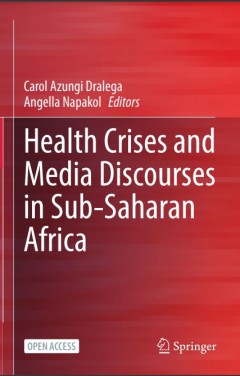
HEALTH CRISES AND MEDIA DISCOURSES IN SUB-SAHARAN AFRICA
This is an open access book which brings together leading scholars and critical discourses on political, economic, legal, technological, socio-cultural and systemic changes and continuities intersecting media and health crises in Sub-Saharan Africa. The volume extensively discusses COVID-19 but it also covers other epidemics, such as malaria, HIV/AIDS as well as “silent” health crises such …
- Edition
- 3
- ISBN/ISSN
- 9783030951009
- Collation
- xviii; 283p;
- Series Title
- -
- Call Number
- 070.1024614592414 HEA C

Latter-day screens : gender, sexuality, and mediated Mormonism
From Sister Wives and Big Love to The Book of Mormon on Broadway, Mormons and Mormonism are pervasive throughout American popular media. In Latter-day Screens, Brenda R. Weber argues that mediated Mormonism contests and reconfigures collective notions of gender, sexuality, race, spirituality, capitalism, justice, and individualism. Focusing on Mormonism as both a meme and an analytic, Weber ana…
- Edition
- edision 13
- ISBN/ISSN
- 9781478005292
- Collation
- ix. :ill. ;384 p.
- Series Title
- -
- Call Number
- 289.3. LAT b
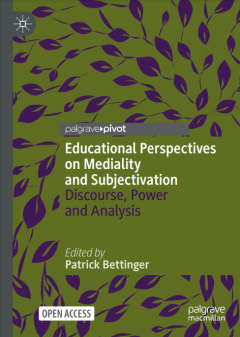
Educational perspectives on mediality and subjectivation : discourse, power a…
This open access book examines the complex relationship between education, media and power. Exploring the entanglement of education media and power structures, the contributions use various examples and case studies to demonstrate how subjectivation processes and digital structures interact with one another. The book asks which modes of subjectivation can be identified with current media cultur…
- Edition
- 10
- ISBN/ISSN
- 9783030843434
- Collation
- xiii; 136p;
- Series Title
- -
- Call Number
- 371.33 EDU P
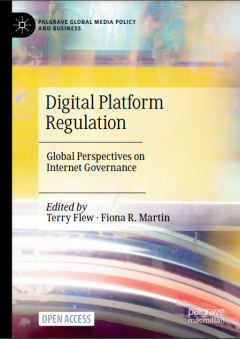
Digital platform regulation : global perspectives on internet governance
“When it comes to the governance of digital platforms, the question of who is regulating whom is now serious enough that scholars have begun to refer to governments as platforms, too. This volume provides a valuable sampling of how this problem looks from the side of government […]” — Sandra Braman, author of Change of State: Information, Policy, and Power; Texas A&M University …
- Edition
- 3
- ISBN/ISSN
- 978-3-030-95220-4
- Collation
- xvii; 319p;
- Series Title
- -
- Call Number
- 384.334 DIG T
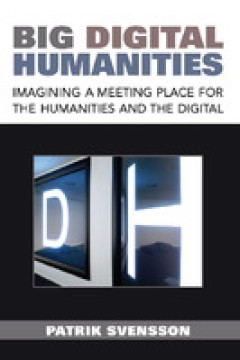
Big Digital Humanities: Imagining a Meeting Place For The Humanities And The …
Big Digital Humanities has its origins in a series of seminal articles Patrik Svensson published in the Digital Humanities Quarterly between 2009 and 2012. As these articles were coming out, enthusiasm around Digital Humanities was acquiring a great deal of momentum and significant disagreement about what did or didn’t “count” as Digital Humanities work. Svensson’s articles provided a w…
- Edition
- -
- ISBN/ISSN
- 9780472053063
- Collation
- -
- Series Title
- -
- Call Number
- -
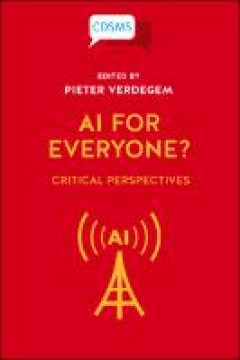
AI FOR EVERYONE? CRITICAL PERSPECTIVES
We are entering a new era of technological determinism and solutionism in which governments and business actors are seeking data-driven change, assuming that Artificial Intelligence is now inevitable and ubiquitous. But we have not even started asking the right questions, let alone developed an understanding of the consequences. Urgently needed is debate that asks and answers fundamental questi…
- Edition
- -
- ISBN/ISSN
- 9781914386169
- Collation
- 310p.
- Series Title
- -
- Call Number
- 006.3 FOR v
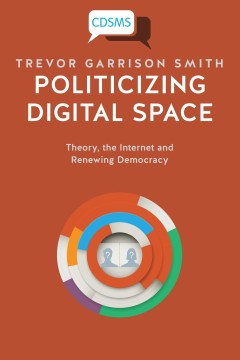
Politicizing Digital Space : Theory, the Internet, and Renewing Democracy
"The objective of this book is to outline how a radically democratic politics can be reinvigorated in theory and practice through the use of the internet. The author argues that politics in its proper sense can be distinguished from anti-politics by analyzing the configuration of public space, subjectivity, participation, and conflict. Each of these terrains can be configured in a more or less …
- Edition
- -
- ISBN/ISSN
- 9781911534426
- Collation
- vi, 154 p.
- Series Title
- -
- Call Number
- 324.7 POL T
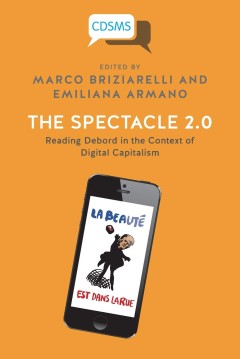
The Spectacle 2.0 : Reading Debord in the Context of Digital Capitalism
Spectacle 2.0 recasts Debord's theory of spectacle within the frame of 21st century digital capitalism. It offers a reassessment of Debord’s original notion of Spectacle from the late 1960s, of its posterior revisitation in the 1990s, and it presents a reinterpretation of the concept within the scenario of contemporary informational capitalism and more specifically of digital and media labour…
- Edition
- -
- ISBN/ISSN
- 9781911534464
- Collation
- xi, 252 p.
- Series Title
- -
- Call Number
- 303.484 SPE E

Bullying im klassenverbnd Doch Nicht Nur in Der Schule
Background: Bullying is an aggressive pattern of behavior that is directed against weaker members of a group. The present empirical study examines bullying as a group phenomenon and addresses the question which roles are taken by different members of a school class and how they can be characterized. The particular focus is on social-cognitive and affective reactions to bullying, taking into…
- Edition
- -
- ISBN/ISSN
- 9783658366193
- Collation
- xxi, 349p. ill;
- Series Title
- -
- Call Number
- 302 BUL R

The psychosocial reality of digital travel : being in virtual places
When physical travel to a specific place is prohibited or otherwise difficult or impossible, digital travel provides a promising alternative. The technology to do this is now widely available and many people have the possibility to meet with others digitally, and thus alleviate the social effects of physical isolation. Digital travel can also be source of pleasure and entertainment, and man…
- Edition
- -
- ISBN/ISSN
- 9783030912727
- Collation
- xi, 152 p. ill;
- Series Title
- -
- Call Number
- 302.231 PSY I
 Computer Science, Information & General Works
Computer Science, Information & General Works  Philosophy & Psychology
Philosophy & Psychology  Religion
Religion  Social Sciences
Social Sciences  Language
Language  Pure Science
Pure Science  Applied Sciences
Applied Sciences  Art & Recreation
Art & Recreation  Literature
Literature  History & Geography
History & Geography